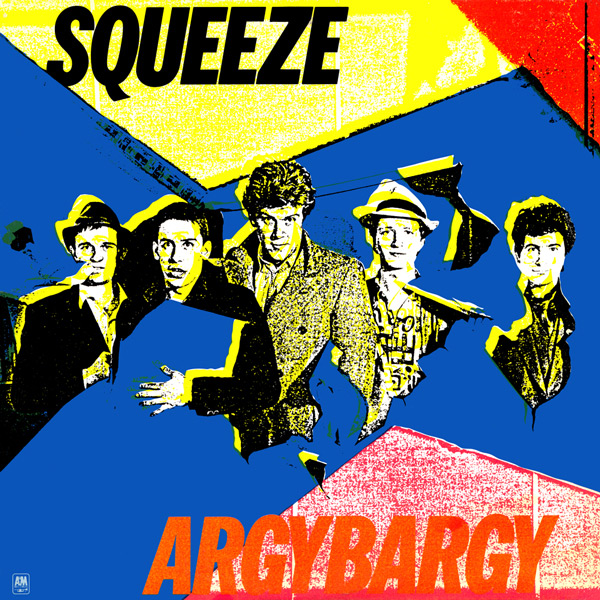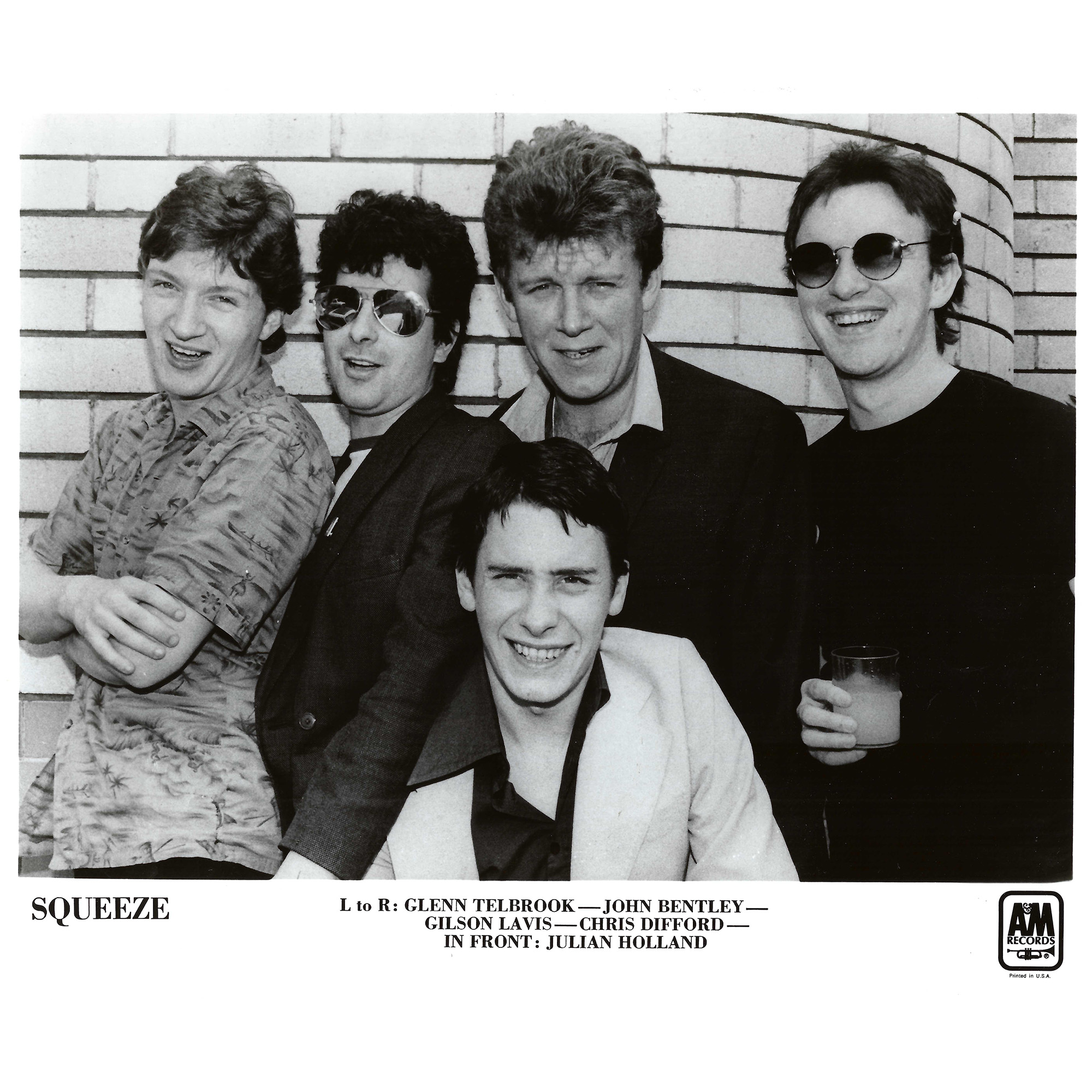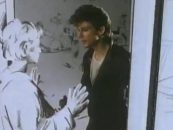 In the early ’70s, several record company Artist & Repertoire managers intimated or downright declared they’d found “the next Bob Dylan.” As a marketing strategy, it drew attention to Bruce Springsteen, Loudon Wainwright III, John Prine, Steve Forbert and other worthy singer-songwriters, but there was never really going to be another Dylan. Still, the aspirations of musicians and their handlers always depend on a certain amount of hype.
In the early ’70s, several record company Artist & Repertoire managers intimated or downright declared they’d found “the next Bob Dylan.” As a marketing strategy, it drew attention to Bruce Springsteen, Loudon Wainwright III, John Prine, Steve Forbert and other worthy singer-songwriters, but there was never really going to be another Dylan. Still, the aspirations of musicians and their handlers always depend on a certain amount of hype.
It was even trickier to suggest you’d found “the next Lennon & McCartney”: By the late ’70s, the team of Chris Difford (words) and Glenn Tilbrook (music) was just about anointed as such by a number of music critics, a growing legion of fans, and the record label A&M, which issued records by Difford and Tilbrook’s London-based band Squeeze.
The quintet had quite a bit of success in Great Britain with its first two albums and Top 10 hit singles, “Take Me I’m Yours,” “Cool for Cats” and “Up the Junction,” but North America was still to be properly engaged. Their third album, Argybargy, supported by some impressive live performances in the States, did the trick when it became Squeeze’s first charting album in the U.S. and Canada upon release in North America in late March 1980. The talented songwriting duo bristled at the comparisons to John and Paul, but the star-making machinery had its own priorities.

Squeeze in 1980 in an A&M publicity photo (Note the incorrect spelling for Glenn Tilbrook)
Not that the youthful tunesmiths didn’t have some history in mind. As Difford told journalist Jon Young, “When we were at school I wanted to be a writer like Leiber and Stoller. That was my whole ambition. I didn’t want to be onstage; that was secondary.” Still, in 1973 at the age of 18, he’d put a sign in a South London shop window that announced, “Band forming for recording session. Influences: Velvet Underground, Kinks, Glenn Miller and jazz.” It was mostly bluff, since there was no session or label to pay for it, but when the 15-year-old guitarist Tilbrook got in touch, they clicked. After a few false starts, a band did emerge during the punk/new wave years that swept away much of the old order and gave the upstarts a way in.
Listen to Squeeze’s Argybargy radio commercial
Squeeze’s 1978 debut LP was produced by the Velvet Underground’s John Cale, but the subsequent Cool for Cats and Argybargy were overseen by John Wood, the producer who’d worked with Nick Drake, Fairport Convention, Pink Floyd and Cat Stevens, among others. Drummer Gilson Lavis, bassist John Bentley and Jools Holland on keyboards rounded out the group that assembled at Chelsea’s Olympic studios in autumn 1979. As Tilbrook later told Creem in 1982, “I don’t think people take songwriting as seriously as they once did bands. Musicians don’t seem to be concentrating on songs. When a band forms, or goes into a studio, it seems to me that nine times out of 10 they concentrate on a sound, and a production and a riff—that sort of mentality seems to me to be behind songs these days. Not an awful lot else, which I think is a shame.” Tilbrook and Difford saw songwriting as a basic craft.
Difford had lots of new lyrics, written in New York’s Greenwich Village, where he was living with his new wife. As usual, he presented them to Tilbrook without direction, explaining nothing: “I just like to get up a good collection of lyrics and slip them under the door. And expect the worst.” When he writes, Difford told writer Geoffrey Himes, “I very rarely have any melody in mind. I don’t hum or tap, I write in silence as you would an essay or take an exam. I don’t write a verse, then a chorus. . .it’s more interesting to write down verses and not say any of them is the chorus and just see which one Glenn picks.”
Drawing from personal experience and pure imagination, Difford creates characters and situations that might work at cross-purposes with Tilbrook’s melodies: “That’s half the pleasure of writing, not knowing exactly what will happen.” Tilbrook agrees that, “Some people get a lyric about lost love and assume that means minor chords and pretty slow. I like to think that sometimes it’ll be a fast tune or a really happy sort of sound.”
Argybargy has 11 tracks, 10 of them Difford-Tilbrook compositions. It opens with the brilliant and hook-filled “Pulling Mussels (From the Shell),” which begins on a lazy beach day and turns uncomfortably creepy while maintaining its urgent melodic bounce. For the enigmatic chorus (“But behind the chalet my holiday’s complete/And I feel like William Tell/Maid Marian on her tiptoed feet/Pulling mussels from the shell”), Tilbrook leads, with his high voice matched note-for-note by Difford octaves lower. The stepping-stone bass part adds punch, and there’s room for a pithy Tilbrook guitar solo, followed by Holland’s spot-on New Orleans-style barrelhouse piano. It’s a quite impressive opener, and signals that, like the Kinks, the sensibility and settings will be undeniably British, not watered down or explained for international audiences.
“Another Nail in My Heart” begins at a gallop, with twinned guitars and Holland’s cheesy Farfisa leading a Chuck Berry-infused romp. The lyrics pour out (“The case was pulled from under the bed/She made a call to a sympathetic friend/And made arrangements”) until Tilbrook takes over with a guitar solo before a minute’s passed. Lavis is also especially good on this cut, buttressing the relentless cascade of surprising chord changes as it rushes between verses, choruses and bridges.
“Separate Beds” is a change of pace, a mostly mid-tempo rhythm that jutters up and then down to an out-of-time interlude that begins with the surprising “Her mother didn’t like me/She thought I was on drugs/My mother didn’t like her/She’d never peel the spuds.” Another ambiguous love song that shows Difford’s distrust of lovey-dovey songwriting cliches, “Separate Beds” finds an unusual destination where the would-be lovers go off “to see the pier and lights/So we could be together/In separate beds tonight.”
Musically, “Misadventure” is as close to Elvis Costello, Joe Jackson or indeed the Stranglers as Squeeze can get without losing their own identity. There’s a crazy number of instrumental touches shoehorned into a whole lotta lyrics, including piercing percussion, a super-grungy bass, and a Brian May-influenced guitar solo near the end. It’s perhaps a bit too frantic.
“I Think I’m Go Go” ends the original LP side with a lovely and strange, even perverse, four minutes. A string section arranged by the veteran Del Newman winds its way around Holland’s synthesizer, Lavis’ intriguingly oddball rhythms (are those finger-cymbals and plastic buckets being struck?) keep you guessing, and Difford adds some vocal hijinks to Tilbrook’s. There’s a travelogue in the lyrics, from “Trams and boats where Strauss is street” to “drive-in films,” “Buckingham Palace trains all late” and “tenth year plays and seedy clubs.”
“If I Didn’t Love You,” which got some U.S. airplay as a single without bothering the Hot 100, begins side two with the humorously straightforward lyric “If I didn’t love you/I’d hate you,” and goes on to explain in more detail what the upset protagonist thinks. It’s got a nicely rolling rhythm and melody, with the Difford-Tilbrook octave-echo trick. The stuttering chorus has a startling wrong-on-purpose chord, and there’s a long slide guitar solo in the middle that sounds like an approximation of a cat mewing. The track certainly gets and maintains your attention, but it’s also the album’s weirdest experiment.
“Farfisa Beat” is a self-conscious garage rock-ish parody that’s little more than a danceable series of lyrical jokes, played perfectly: “Flash flash mirror ball/Stereo the disco/Wow wow ain’t she tall/Moved off my feet/To the Farfisa Beat.” On the next cut, Difford sings, and talks, his way through the short “Here Comes That Feeling,” to little effect. “Vicky Verky” follows, jumping out with yet another witty Difford opening couplet: “With her hair up in his fingers/The fish and chips smell lingers.” The melody is relatively flat for Tilbrook, but he sings enthusiastically as the band, especially Bentley and Lavis, has a rocking good time. A nice string section comes in as Holland plays what sounds like a harpsichord. Five verses, no chorus and a bridge taken at breakneck speed and it’s over before you know it.
“Wrong Side of the Moon” is Holland’s vocal spotlight, with his melody matched to Difford’s words. It’s a Motown-inspired piece, complete with female backing vocals, except there’s an electric guitar solo where Detroit’s best might have inserted a saxophone feature. Holland didn’t stick with Squeeze for their fourth album, East Side Story, leaving for a solo career and his celebrated role as radio and television presenter in the U.K. After he left, Difford recalled, “He was becoming less and less involved at this time. I think he was getting frustrated that he wasn’t getting more of a shout in the band.” Obviously, the 2:25 “Wrong Side of the Moon” wasn’t enough.
“There at the Top” finishes the disc in fine fashion, with perhaps a nod to Elvis Costello and the Attractions’ “Pump It Up” in the arrangement and basslines. Some great Stax/Volt flourishes blend with Tilbrook’s fantastic lead guitar work. The lyrics poke a bit of fun at a “modern woman/who needs no prompting/On her should ‘n’ shouldn’t,” who nonetheless gets pressured into accepting her role as an object of desire. Or does she?
Over the objections of their manager and American label, Squeeze insisted the album be titled Argybargy. Difford remembers, “We didn’t give a shit and were in a belligerent, young Englishmen’s mood.” The slang title—which roughly translates as “a somewhat confused, heated, but not serious, discussion”—summed up their feeling of dealing with the pressures of writing, touring, performing and recording as a group now grappling with the expanded set of characters that come with professional success.
The album spent several months on the British album charts, peaking at #32, and made it as high as #71 on Billboard’s American LP listing. The set’s eclecticism isn’t a demerit: the BBC’s Chris Jones, speaking for many listeners, considers Argybargy the band’s crowning achievement, declaring it “a masterpiece of kitchen sink pop.” A 2008 deluxe CD edition added demos, B-sides and a Hammersmith Odeon concert from March 9, 1980. Chris Difford’s memoir Some Fantastic Place arrived in 2018. The out-of-print book Squeeze: Song By Song is a treasure, full of insight into the Difford-Tilbrook process, if you can find it and afford it.
Squeeze, with personnel changes, hiatuses, Difford and Tilbrook solo careers and Covid-19 breaks in the rear view mirror, are still touring and recording new material. Their 16th full album, The Knowledge, arrived in 2017; their latest release is the Food For Thought digital EP from late 2022. They’re touring in 2024 for their 50th anniversary; tickets are available here and here. Their extensive catalog is available in the U.S. here and in the U.K. here.
Watch Squeeze perform “Pulling Mussels…” in 1980
Related: Our review of Squeeze live in 2019
- Genesis’ ‘Seconds Out’: From Paris With Love - 10/14/2025
- The Who’s ‘Odds & Sods’: Beat the Boots - 10/04/2025
- Bob Dylan’s ‘Desire’: Story Time - 09/21/2025






1 Comment so far
Jump into a conversation“Argybargy” may be a term unfamiliar to Americans, but “argle-bargle” should be well known to any American who is acquainted with the writings of the late Supreme Court Justice Antonin Scalia.